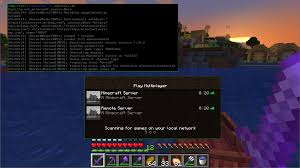In the realm of networking, port checkers play a pivotal server ip address in minecraft role in ensuring that communication flows smoothly between devices. These tools are instrumental in identifying open, closed, and filtered ports, providing critical insights into network security and accessibility. In this article, we delve into the fundamentals of port checkers, their functionality, and their significance in maintaining a secure network environment.
What Are Ports?
In the context of computer networking, a port is a virtual endpoint for communication. It’s analogous to a door on a building, where each door is designated for specific types of traffic. Ports are identified by numbers, and they allow different applications and services on a single device to communicate with each other and with devices on the network.
What Is a Port Checker?
A port checker is a software tool or online service that scans a specified IP address or hostname to determine the status of its ports. It can identify whether a port is open, closed, or filtered, providing valuable information about the accessibility of a particular service or application.
How Does a Port Checker Work?
When you run a port checker against a target IP address or hostname, the tool sends out packets to various ports on that target. Depending on the response received, the port checker can determine the status of each port:
- Open Port: If a port checker receives a response indicating that a port is open, it means that there is a service listening on that port, and communication can be established.
- Closed Port: A closed port signifies that there is no service actively listening on that port. The system may respond with an ICMP message indicating that the port is closed.
- Filtered Port: A filtered port indicates that there is a firewall or other network device blocking access to that port. The port checker may not receive any response from the target, or it may receive a “port unreachable” message.
Why Are Port Checkers Essential for Network Security?
- Identifying Vulnerabilities: Port checkers help network administrators identify open ports that could potentially be exploited by attackers. By identifying and closing unnecessary open ports, administrators can reduce the attack surface of their network.
- Firewall Configuration: Port checkers can be used to verify that firewall rules are configured correctly. They can ensure that only the necessary ports are open and that access is restricted to authorized users and services.
- Monitoring for Suspicious Activity: Regular port scanning can help detect unauthorized changes to the network configuration. Sudden changes in the status of ports could indicate a security breach or an attempt to exploit vulnerabilities.
In conclusion, port checkers are indispensable tools for network administrators and security professionals. By providing insights into the status of ports and helping to identify potential vulnerabilities, port checkers play a crucial role in maintaining the security and integrity of computer networks.

